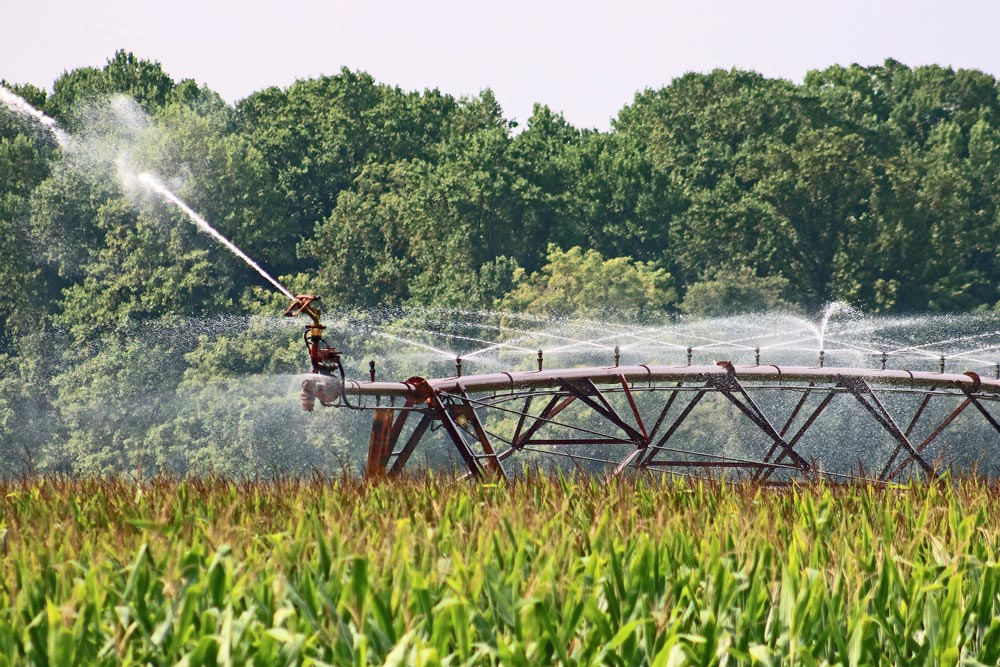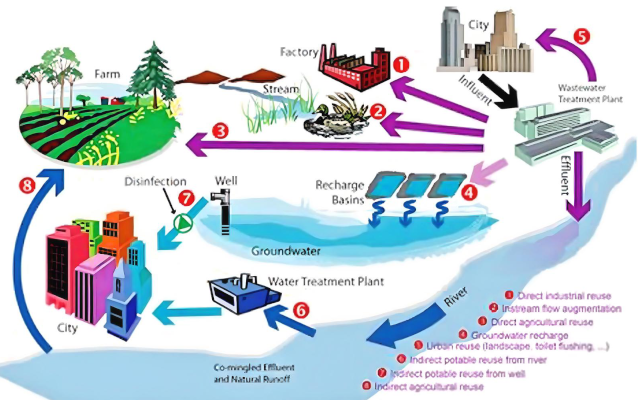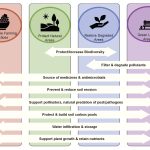Imagine being able to water your crops without worrying about draining precious freshwater resources. This is not just a dream; it’s a reality that you can achieve through the safe reuse of wastewater in agriculture.
You might be wondering how this is possible, and if it’s truly safe for your crops and the environment. The good news is, with the right methods, you can transform wastewater into a sustainable water source for your farm. This not only helps conserve water but also cuts down on your water costs.
Intrigued? You’ll discover straightforward techniques to safely and effectively reuse wastewater, ensuring your crops thrive while you contribute positively to environmental conservation. Stick with us, and you’ll learn how to turn wastewater into a valuable ally for your agricultural needs.

Benefits Of Wastewater Reuse
Reusing wastewater in agriculture offers environmental benefits. It conserves water and reduces pollution. Safe reuse involves proper treatment and monitoring to ensure crops thrive without harmful effects.
Reusing wastewater in agriculture is not only an environmentally friendly solution, but it also offers a multitude of benefits that can enhance your farming practices. The idea of utilizing wastewater might seem unconventional, yet it offers advantages that are worth considering. Imagine turning what is often seen as waste into a valuable resource. This approach could not only save water but also boost productivity in your fields. Let’s dive into the benefits that come with reusing wastewater in agriculture.Environmental Conservation
Reusing wastewater helps conserve precious water resources. By recycling water, you reduce the demand on freshwater supplies, leaving more for drinking and ecosystem sustenance. It’s a win-win situation where you contribute to environmental preservation while meeting your irrigation needs.Cost Savings
Think about the money saved by using wastewater instead of relying solely on freshwater sources. Treating and using wastewater can lower water expenses. This cost-effective approach is especially beneficial for farmers operating on tight budgets. You could reinvest the savings into other areas of your farm.Nutrient Boost
Wastewater often contains nutrients like nitrogen and phosphorus, essential for plant growth. By using treated wastewater, you provide your crops with a nutrient-rich irrigation source. This can reduce the need for chemical fertilizers, promoting healthier soil and plants.Increased Productivity
With the right treatment, wastewater can become a reliable water source for irrigation. Consistent water supply means healthier crops and potentially higher yields. Imagine your fields thriving even during dry spells, thanks to the availability of treated wastewater.Adaptability To Climate Change
As climate change impacts water availability, having a sustainable water source becomes crucial. Wastewater reuse can be a strategic solution to adapt to changing weather patterns. Are your farming practices ready to face the uncertainties of climate change?Enhanced Soil Health
Regular irrigation with treated wastewater can improve soil structure and fertility. The organic matter in wastewater can enhance soil quality, fostering a better environment for root development. Picture robust, resilient crops growing in enriched soil, all thanks to wastewater reuse. By exploring these benefits, you open up possibilities for more sustainable and productive farming. Consider how wastewater reuse could transform your agricultural practices for the better.
Treatment Methods For Wastewater
Reusing wastewater in agriculture is a sustainable practice. It conserves water and supports food production. To use wastewater safely, it must undergo treatment. This process removes harmful substances and pathogens. Below are some effective methods.
1. Primary Treatment
Primary treatment involves removing large particles. These include debris and sediments. This step prepares wastewater for further treatment. It is essential for reducing the load on subsequent processes.
2. Secondary Treatment
Secondary treatment uses biological processes. Microorganisms break down organic matter. This step is crucial for reducing harmful bacteria and nutrients. It often involves aeration tanks or activated sludge systems.
3. Tertiary Treatment
Tertiary treatment provides advanced cleaning. It removes remaining contaminants. Processes include filtration and chemical treatment. This step ensures the water is safe for agricultural use.
4. Disinfection
Disinfection kills remaining pathogens. Common methods include chlorination and UV radiation. Disinfection ensures the safety of crops and soil. It is a vital step in the treatment process.
5. Membrane Filtration
Membrane filtration is effective for purifying water. It uses semi-permeable membranes to separate impurities. This method is efficient and ensures high-quality water. It is suitable for various agricultural applications.
Safety Measures In Agricultural Application
Reusing wastewater in agriculture requires careful measures to protect crops and soil. Treat water to remove harmful substances. Implement monitoring systems to ensure safety and sustainability.
Reusing wastewater in agriculture offers a sustainable solution to water scarcity, but safety is paramount. Ensuring safe application protects both crops and consumers. Let’s explore essential safety measures to help you reuse wastewater effectively in your agricultural practices. ###Understanding Water Quality Standards
Before using wastewater, understand the water quality standards in your region. These standards help determine whether the water is safe for agricultural use. Check for contaminants like heavy metals and pathogens that can harm crops and soil. ###Proper Treatment And Filtration
Treat wastewater thoroughly before application. Use filtration systems to remove particles and harmful substances. Techniques like sedimentation and biological treatment can enhance water quality. ###Monitoring And Regular Testing
Regularly test the treated wastewater. This ensures that the water remains within safe limits for agricultural use. Testing helps detect any changes in water quality, allowing timely adjustments. ###Choosing Appropriate Crops
Select crops that are suitable for wastewater irrigation. Some plants are more tolerant of certain water qualities. Research which crops thrive best under your specific wastewater conditions. ###Safe Irrigation Techniques
Adopt irrigation methods that minimize contact between water and edible parts of the crop. Drip irrigation is a safer choice compared to overhead sprinklers. It reduces the risk of contamination and waterborne diseases. ###Maintaining Soil Health
Monitor soil health regularly. Wastewater can alter soil properties over time. Use soil amendments like gypsum to counteract any negative effects and maintain fertility. ###Educating Farm Workers
Ensure that everyone on the farm understands the safety protocols. Train workers on handling wastewater and equipment. This minimizes human health risks and ensures safe practices are followed. ###Community Engagement And Transparency
Engage with the local community about your wastewater reuse efforts. Transparency builds trust and addresses any concerns. Share your safety measures and benefits of your practices with them. Reusing wastewater in agriculture requires a commitment to safety. By implementing these measures, you not only protect your crops but also contribute to a sustainable future. Are you prepared to take these steps for a greener tomorrow?
Innovative Techniques For Sustainable Use
Reusing wastewater in agriculture promotes sustainable farming. Farmers can safely irrigate crops using treated wastewater. This method conserves water and supports plant growth.
Innovative techniques for reusing wastewater in agriculture are changing the way we think about sustainable farming. These methods not only help conserve precious water resources but also enhance the productivity of your crops. By adopting these techniques, you can contribute to a more sustainable future while ensuring your farm thrives.1. Drip Irrigation With Treated Wastewater
Drip irrigation is a highly efficient way to use treated wastewater. It delivers water directly to the roots of the plants, minimizing waste and evaporation. Imagine your plants getting a steady, precise supply of water, just like the perfect morning coffee that starts your day right. Implementing drip systems can significantly cut down water usage. They also reduce the risk of diseases that often spread through water splashing on leaves. This method not only conserves water but also promotes healthier plant growth.2. Constructed Wetlands For Natural Filtration
Constructed wetlands can transform wastewater into a safe irrigation source. These systems mimic natural wetlands, using plants and microorganisms to filter and purify water. Picture a small, lush wetland area on your farm, not only adding beauty but also serving a critical role in water management. These wetlands can effectively remove pollutants, allowing you to reuse the water safely for your crops.3. Crop Rotation With Salt-tolerant Plants
Certain plants thrive on wastewater that might be too saline for others. By rotating salt-tolerant crops, you can make the most of your water resources without harming your soil. Imagine a field of vibrant crops that are not only feeding your community but also managing to thrive on water that would otherwise be wasted. This technique allows you to diversify your crops while maintaining soil health.4. Soil Moisture Sensors For Precision
Using soil moisture sensors can help you apply wastewater more efficiently. These sensors guide you on when and how much to water, optimizing the use of every drop. Think of these sensors as a helping hand, ensuring you’re watering your crops just right. This precision not only saves water but also boosts crop yields by preventing overwatering and underwatering.5. Biogas Production From Wastewater
Treating wastewater can also produce biogas, a valuable energy source. By capturing and using this gas, you can power farm operations or even sell excess energy. Picture your farm not just as a place that produces food, but also as a mini-power station. This approach reduces dependency on fossil fuels and adds another dimension to sustainable farming. Are you ready to embrace these innovative techniques? By reusing wastewater safely, you can enhance your farm’s sustainability and productivity. What small step will you take today to make a big difference tomorrow?Conclusion
Reusing wastewater in agriculture offers many benefits. It saves water and reduces costs. Farmers can improve soil health and crop yields. Safety is crucial in this process. Proper treatment ensures water is safe for plants. Testing and monitoring help maintain quality.
Educating farmers on best practices is key. Communities can support sustainable farming through policies. This practice protects resources for future generations. Embracing these methods can make agriculture more sustainable. By reusing wastewater wisely, we help our planet thrive.


